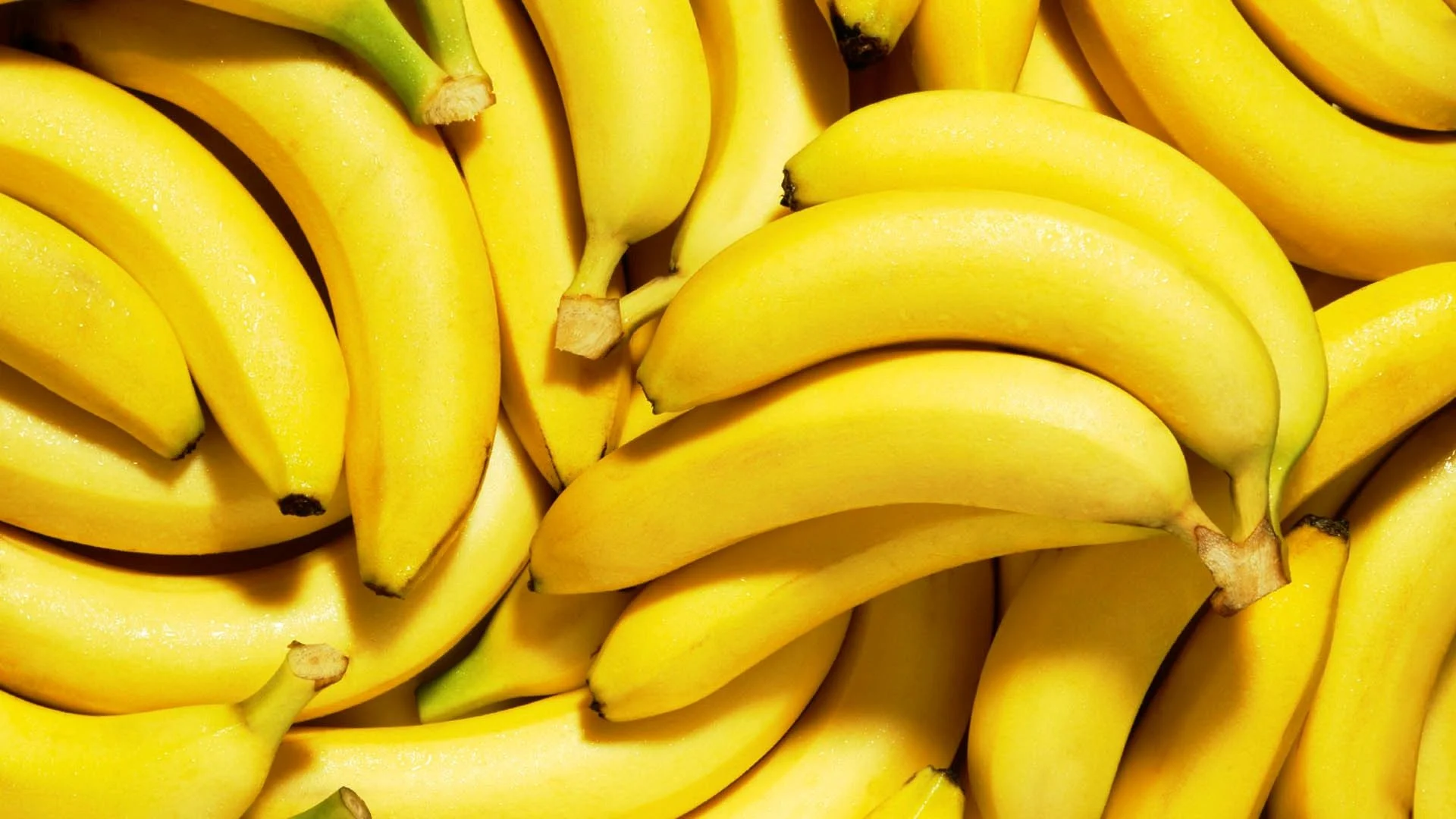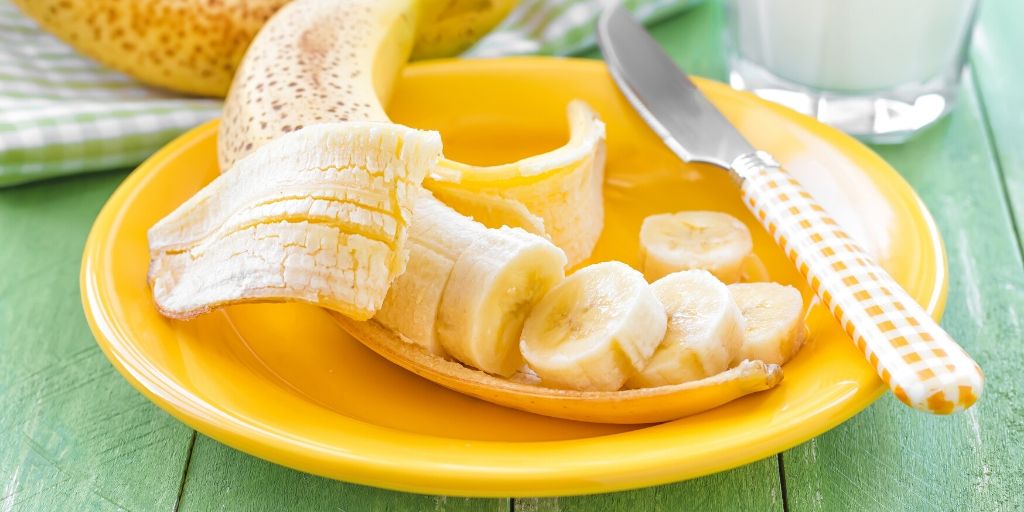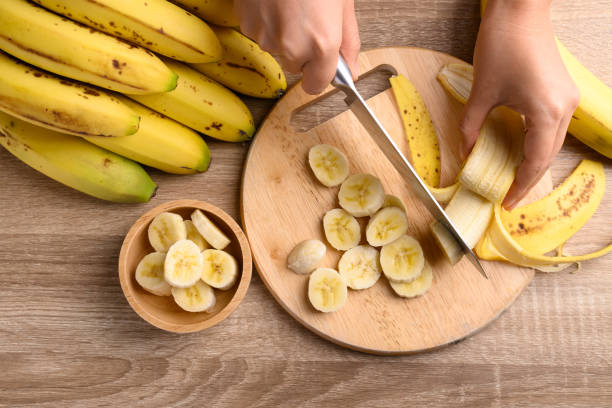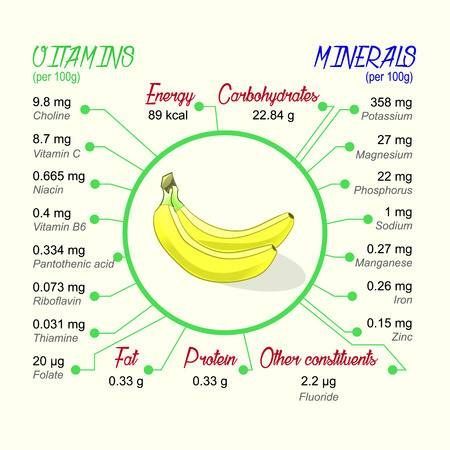15 Proven Nutritional Values of Banana May Surprise You [2023]
You have probably eaten or are contemplating eating a banana. But just how important is a banana really to your health and body? It is imperative that you know about this so that you can appreciate this tropical fruit better. We are here to help you out.
Our discussions below endeavor to provide more information about the nutritional value of banana.
To do this, we shall highlight the main nutrients that the banana possesses as well as the abundance of the same in the fruit.
Lastly, we shall explain the benefits that the nutrients potentially have to offer.
15 Nutritional Values of Banana

Below is a breakdown of the nutritional value of banana:
#1: Potassium
Comprises 13% of the nutritional contents of the banana. It is both a mineral and an electrolyte at the same time.
The nutrient helps your muscles to operate smoothly and controls the breathing and heartbeat faculties.
Banana has just the right amount of Potassium and is less strenuous to your kidneys hence.
#2: Vitamin A
Also called Beta Carotene, Vitamin A accounts for roughly 2% of the nutritional value of banana.
This nutrient confers plenty of benefits to the body. Among others, it upholds the health of the eyes of adults and children alike. Also, it helps with the development of the limbs, eyes, ears, and hearts of fetuses.
#3: Vitamin C
Forms roughly 15% of the dietary contents of the bananas. Being water-soluble, the vitamin is readily absorbed in the bloodstream.
It brings about lots of great impacts on the skin and the immune system at large.
Additionally, it serves as an antioxidant that fights off infections to keep you healthy.
#4: Carbohydrates
Existing for your bodily strength is the Carbohydrate. This forms 10% of all the nutrients that the body may potentially bring forth.
The carbohydrates in the banana come in the forms of fibers, starches, and sugars. They give your body the energy it needs to stay afloat well and serve you with strength.
#5: Dietary fiber another nutritional value of banana

The dietary fiber, also called prebiotics, forms 12% of all the nutrients that the banana has to offer. Its role is mainly to help with the digestion of foods and the absorption thereof in the small intestines.
If the same finds its way in the large intestines, it aids with the fermentation of meat products.
#6: Natural sugar
Bananas contain natural sugars in large quantities. Unlike their artificial counterparts, these are easier to break down and also do not alter the sense of taste considerably.
The existence of natural sugar also negates the need for you to add table sugar for the purpose of improving the taste thereof.
#7: Protein
Though banana is a fruit, it nonetheless contents some substantial quantities of proteins.
Protein works extra hard to build your body. They are the ones that form the foundational building blocks of your body tissues and may also serve as the sources of fuel if the body is deprived of the same from fats and carbs.

#8: Moisture
Banana being succulent contains plenty of moisture in it. This moisture comes in handy when in a place that is dry and devoid of sufficient water contents.
With it in your bananas, you may be certain not to feel thirsty or sustain extensive deprivation of the water contents in your body.
#9: Iron
Wrapping it all up is iron, which accounts for around 2% of the sum total nutrients that bananas have to offer. The real nutritional value of banana is so much that one cannot ignore this fruit
Iron is a mineral that aids in the formation of red blood cells and the transportation of oxygen in the body. It is great for those who are anemic or menstruating women.
#10: Limited calories
Bananas do have some calories. Most of the time, the number of calories is 105. It is as such incapable of causing obesity or hypertension as well as a host of other metabolic disorders when ingested.
Thus, it is a fruit you want to look to if you have issues with excess weight.
#11: Manganese
Manganese comprises roughly 14% of the nutritional value of bananas. Its role is to aid with the metabolism of the nutrients that are ingested by the bodily systems.
To play this role, it activates the enzymes in the metabolism and hence prevents the accumulation of fat and other harmful deposits.
 #12: Copper
#12: Copper
Accounting for around 10% of the sum total nutrients that the bananas have to provide, Copper is indeed truly essential to the body. It works alongside the Iron to form the red blood cells.
Besides these, it also maintains the healthy states of the bones while boosting the proper functioning of the blood vessels.
#13: Magnesium
This nutrient accounts for around 8% of all the nutrients and the positive outcomes that the wonderful tropical fruit of banana has to confer.
The body taps into this nutrient to stay healthy as it plays a vital role in regulating the functions of the muscles and the nervous systems.
#14: Vitamin B6
Also known as pyridoxine, Vitamin B6 mainly aids the body in storing energy from both carbohydrates and proteins.
Additionally, it aids the body in forming the hemoglobin contents that carry the oxygen in the blood from the lungs to the uttermost parts of the body.
#15: Fat
Though bananas are low in calories, it does have minuscule amounts of fat. Typical banana fruit contains a paltry 0.4 grams of fat.
The nutritional value of banana is such that even if you have to eat lots of bananas at a time, you need to worry about the possibility of getting fat, obese, sustaining heart attacks, or the risks of hypertension.
CONCLUSION
You need no further conviction that the banana fruit is largely beneficial to the body.
Indeed, our revelations about the nutritional value of banana above have gone far to let you know what to expect from the same.
We should now expect you to appreciate the fruit better.
In fact, we urge you to go ahead now and make appropriate arrangements to incorporate the same in your dietary needs and demands.
As a bonus, the banana has the added advantage of being consumable at just about any time of the day.
That gives you the freedom to choose when to consume it.
